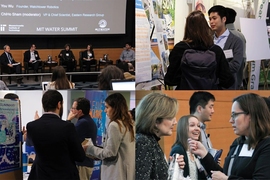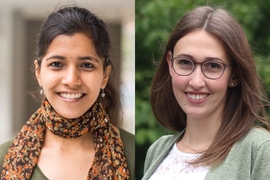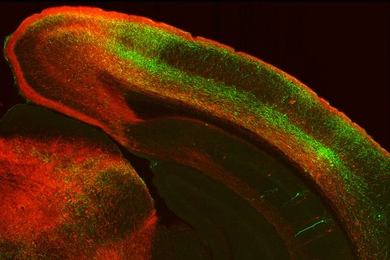Water operator partnerships, or WOPs, bring together water utility employees from different countries to improve public water delivery and sanitation services. “In these partnerships, interpersonal dynamics are so important,” explains Andrea Beck, “and I’m really passionate about hearing people’s stories.” Beck, a PhD candidate in the Department of Urban Studies and Planning (DUSP) and a 2018-19 J-WAFS Fellow for Water Solutions, is studying the dynamics of water operator partnerships to understand how they create mutual benefit for water utilities worldwide.
WOPs bring together utilities from different countries as peer-to-peer partnerships to encourage mutual learning. Topics covered by these partnerships range from operational issues to finance and human resources. WOPs were conceived by a United Nations advisory board in 2006 as an alternative to public-private partnerships and have since gained traction across Europe, Africa, Asia, and Latin America, with over 200 partnerships formed to date. Beck’s research focuses on the development of WOPs in global policy circles, differences between WOPs and public-private partnerships, and conditions for successful partnerships.
A journey of interest
Beck’s interest in water issues and African culture began long before she came to MIT. After finishing high school, Beck volunteered at a cultural center in rural Malawi, where she developed an appreciation for cultural immersion. Her undergraduate and master’s work focused on water resources and trans-boundary water cooperation; during her PhD studies at MIT, Beck shifted her focus to urban water issues, seeking a topic that more personally affected people at smaller scale. Water issues “have always been close to my heart,” she explains. When Beck returned to Malawi for her doctoral fieldwork in 2018, she found her urban water perspective “eye-opening.” “I was suddenly seeing all of the valves in the ground. I was looking for pipes,” she explained. “If I hadn’t studied that here [at DUSP], I would have been blind” to those elements.
Inspired by Associate Professor Gabriella Carolini in the International Development Group at DUSP, Beck focused her doctoral research on water and sanitation services and the water operators that serve urban populations. In addition to Carolini, she is working with Professor Lawrence Susskind in the DUSP Environmental Policy and Planning Group and Professor James Wescoat in the Department of Architecture. Beck used the United Nations Habitat database of WOPs to gain an overview of all partnerships worldwide. From this background research, she decided to focus on partnerships in Africa due to their prevalence and her previous experience in the region.
In 2018, MIT’s MISTI-Netherlands program sponsored Beck’s participation in a short course on partnerships for water supply and sanitation in the Netherlands. The course’s lecturers were part of a Dutch water company conducting international water partnerships with a range of African countries, including Malawi. Beck then used the connections from the short course and the support from her 2018-19 fellowship from the Abdul Latif Jameel Water and Food Systems Lab (J-WAFS) to research partnerships underway in the Lilongwe, Malawi water utility, which has worked with partners from the Netherlands, Rwanda, Uganda, and South Africa. She observed meetings between representatives, shadowed workers in the field, and conducted interviews. Beck found that many utilities faced similar challenges, such as non-revenue water, or water lost after pumping. She also found that utilities had much to gain from exchanges with colleagues and peers. For instance, the utility representatives in Lilongwe, Malawi were excited about their partnership with Rwanda because they saw an opportunity to share their experiences as peers.
Beck found ample support at MIT for her dissertation project. “I’m drawing on development studies, urban planning, geography, and ethnographic approaches, and MIT has allowed me to bring all of this together,” she explains. Beck has received funding from J-WAFS, DUSP, MISTI-Netherlands, the Center for International Studies, and MISTI-Africa. “They’ve been great resources,” she says, “and I’ve felt that there is an understanding and an appreciation for qualitative research and the contributions it can make.” Beck also highlighted that the short course sponsored by MISTI-Netherlands, and the water utility connections she forged there, were “absolutely instrumental in [her] research.”
Beck has great appreciation for the J-WAFS Fellowship as well. The open-ended nature of the funding gave her the academic freedom to pursue the research questions she was interested in, while the additional time allowed Beck to digest her fieldwork and think about how to drive her research forward in new ways.
Taking a deeper dive
In the future, Beck would like to study high-performing utilities across Africa, in places such as Morocco, Burkina Faso, and Swaziland. “I want to do more research into these utilities,” she explains, “and understand what other utilities could learn from them.” She will begin this work soon, having recently received an award from the Water Resource Specialty Group of the American Association of Geographers that will support a research trip to Rabat, Morocco, to study WOPs there. She would also like to conduct additional interviews in the Netherlands, since Dutch representatives are involved in many utility partnerships in Africa.
Beck’s qualitative research into partnership dynamics provides a necessary perspective on the effectiveness of WOPs. Being able to “follow along [with utility partners], hang out with them, chat with them while they’re doing their work, is something that has really enriched my research,” she explains. Beck’s analysis is one of the first to compare learning dynamics between north-south and south-south WOPs; most studies examine one partnership in detail. Her work could pinpoint ways to improve current water utility partnerships. As the world grows increasingly interconnected and water grows scarcer, integrating multiple perspectives into these issues will provide a more stable grounding to create robust solutions for issues of water access and social equity.










